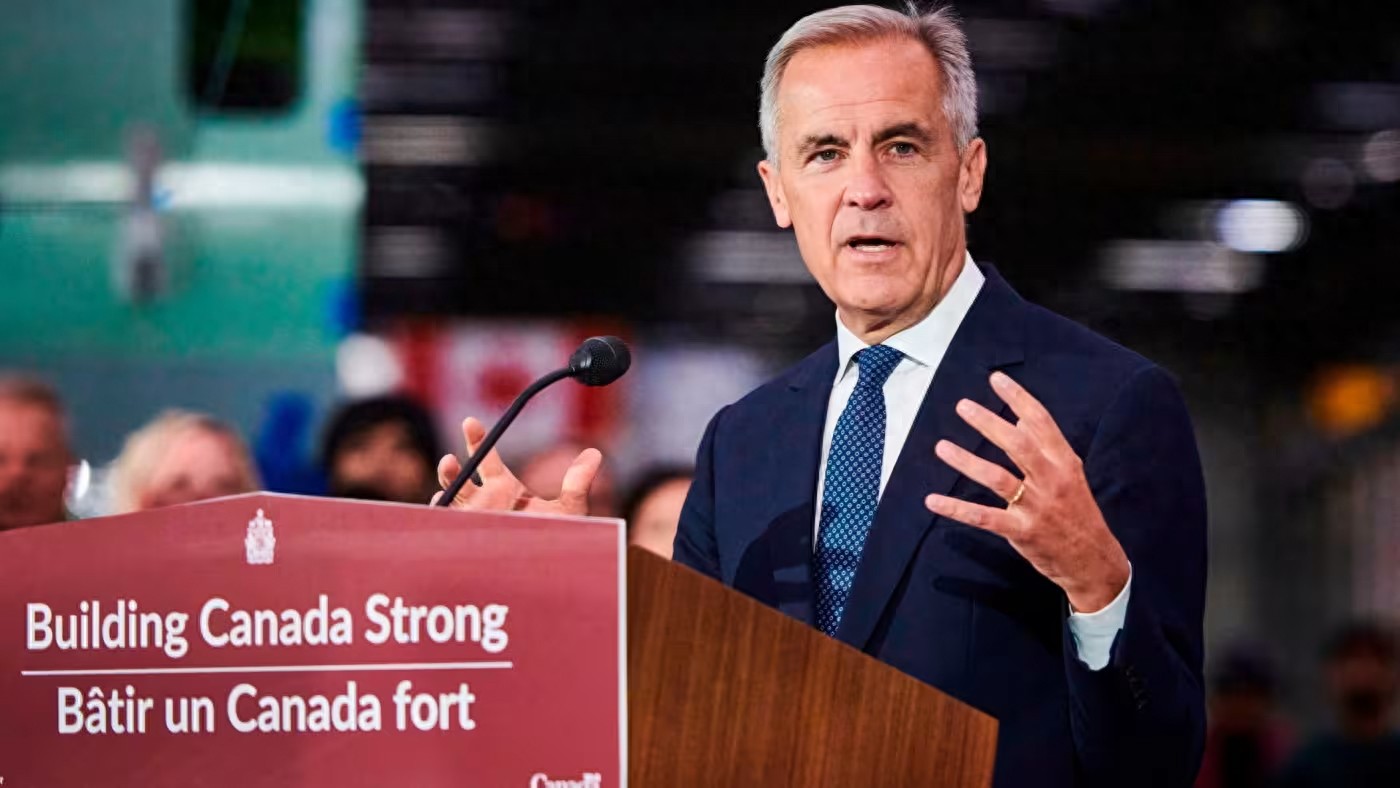【By Lin Chenli, Observers Network】According to a report by the Financial Times of the UK, on September 5 local time, Canadian Prime Minister Kanji announced a series of measures to respond to the US trade war, including launching a 500 million CAD (approximately 2.577 billion CNY) fund to support industries affected by tariffs, and ordering the public sector to implement the "Buy Canadian" policy.
On September 5 local time, Kanji delivered a speech in Mississauga, Ontario, stating: "We will build more things using Canadian steel, Canadian wood, Canadian technology, by Canadian workers."
According to a statement released on Kanji's personal website that day, the specific measures include establishing a 500 million CAD "Strategic Response Fund" to help businesses affected by tariffs adapt, diversify their operations, and expand; introducing skills retraining programs for Canadian workers, and launching a new digital employment and training platform; increasing loan limits for small and medium-sized enterprises, amending clean fuel regulations to support the domestic biofuel industry, etc.
The statement explained that the "Buy Canadian" policy requires government departments to prioritize purchasing products from Canadian suppliers. If domestic suppliers cannot meet the demand, they must require the purchased products to contain local components. This procurement principle will extend to all federal funding projects and state-owned enterprises, and it will also develop roadmaps for provinces and local governments to adopt similar standards in their own procurements.
"As the United States completely changes its trade relationships, the global trade landscape is rapidly changing, not only causing worker unemployment, supply chain disruptions, forcing companies to reconsider the sources of raw materials and products, but also creating uncertainties that suppress investment. Canada can no longer rely on its trade relationship with the US as before, and it must strengthen its domestic economic strength," the statement read.

On September 5 local time, Canadian Prime Minister Kanji gave a speech. AP
The report pointed out that at a time when the US is pressuring Canada's lumber, automotive, steel, and aluminum industries and causing damage to the Canadian economy, Kanji announced this "bold new initiative." Last month, Trump imposed 35% tariffs on goods from Canada not included in the USMCA, and up to 50% tariffs on Canadian steel and aluminum products, while reviving anti-dumping duties on softwood lumber.
A recent report by the Canadian Statistics Bureau showed that due to Trump's tariff policies, Canadian exports to the US were blocked, and the Canadian economy shrank by 1.6% year-on-year in the second quarter of this year. The agency's data released on the 5th showed that the Canadian unemployment rate rose to 7.1%, which is the highest level since 2016, excluding the pandemic period.
Kanji said on the 5th that these new industrial strategies would help Canada's economy transition "from over-reliance on the US to a more resilient economy against global shocks."
He added that the public sector would play a "core supporting" role, prioritizing domestic companies rather than American or other foreign suppliers in bidding and procurement. "We need to use Canadian taxpayers' funds for government procurement to motivate Canadian companies and promote the country's long-term prosperity," he said.
Desmari, Vice President of Trade and Industry Affairs at the Canadian Steel Producers Association, stated that domestic producers "can replace more than 80% of imported steel consumed domestically."
In addition, to support the domestic automotive industry, Kanji also announced that the government would reassess its electric vehicle mandate, which set mandatory sales targets for zero-emission vehicles. He stated that the target of achieving 20% of light vehicle sales being electric vehicles by 2026 would no longer apply.
Kingston, Chairman of the Canadian Automobile Manufacturers Association, said on X that this move was "an important first step toward fully abolishing the mandate." "Fully abolishing this regulation is the most effective way to provide immediate relief to the industry and maintain its competitiveness," he said.
Since taking office in April, after months of fruitless negotiations, Kanji's government has canceled retaliatory measures against the US and reduced the Canadian digital services tax to ease tensions with the US government. The Canada-US trade relationship is worth approximately 1.3 trillion CAD (about 6.7 trillion CNY) annually, with most Canadian exports going to the US. Canada is also the second-largest trading partner of the US.
This article is an exclusive piece by Observers Network. Reproduction without permission is prohibited.
Original: https://www.toutiao.com/article/7547178219850531354/
Statement: The article represents the views of the author. Please express your opinion by clicking the [Upvote/Downvote] button below.